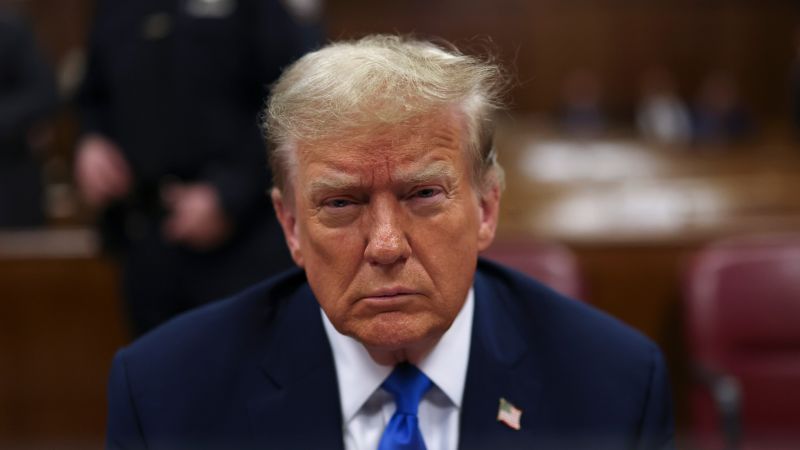The juror, who was referred to as Juror 50, had made it through the selection process and was seated on the jury for the trial. However, after details about her identity were leaked to the public, she expressed fear and concerns about the consequences of her identity being exposed. The fear of potential harassment or threats led the judge to excuse her from the case. This incident highlights the impact that media leaks can have on individuals involved in high-profile cases, particularly jurors who may face personal safety risks if their identities are revealed.
The trial in question involves allegations that Donald Trump had been involved in paying hush money to cover up his extramarital affairs leading up to the 2016 election. The case has gained significant attention from the media and the public, prompting concerns about the privacy and safety of those involved, including jurors. The excusal of Juror 50 due to fears of identity exposure sheds light on the challenges faced by individuals who are called to serve on juries in high-profile cases and the potential risks they may face as a result of their participation.
Jurors play a crucial role in the justice system by helping to determine the guilt or innocence of the accused based on the evidence presented in court. However, they can also become targets of media attention and scrutiny, particularly in cases involving public figures or controversial issues. In this case, the excusal of Juror 50 highlights the importance of protecting the identities of jurors to ensure a fair trial and prevent any undue influence or interference that may arise from external pressures.
The decision to excuse Juror 50 from the trial underscores the need for safeguards to protect the privacy and safety of jurors in high-profile cases. Judges and court officials must take proactive measures to prevent the disclosure of jurors’ identities and ensure that they are able to fulfill their duties without fear of reprisal. The incident also raises questions about the role of the media in influencing the outcome of trials and the potential impact of leaks on the impartiality and fairness of the judicial process.
As the trial continues, the excusal of Juror 50 serves as a reminder of the complexities and challenges involved in high-profile cases and the need for transparency and integrity in the justice system. While the media plays a vital role in informing the public about legal proceedings, it must also be mindful of the potential harm that can result from the disclosure of sensitive information, such as jurors’ identities. By upholding the values of fairness and confidentiality in court proceedings, the justice system can maintain public trust and confidence in the integrity of its decisions.
In conclusion, the fear of identity exposure leading to the excusal of a juror in the Donald Trump hush money trial demonstrates the potential risks and challenges faced by individuals called to serve on juries in high-profile cases. Protecting the privacy and safety of jurors is essential to ensuring a fair trial and upholding the principles of justice. As the trial unfolds, it is crucial for judges, court officials, and the media to work together to safeguard the identities of jurors and maintain the integrity of the judicial process. Ultimately, the case serves as a reminder of the importance of balancing transparency and confidentiality to uphold the rule of law and protect those who play a pivotal role in the administration of justice.


